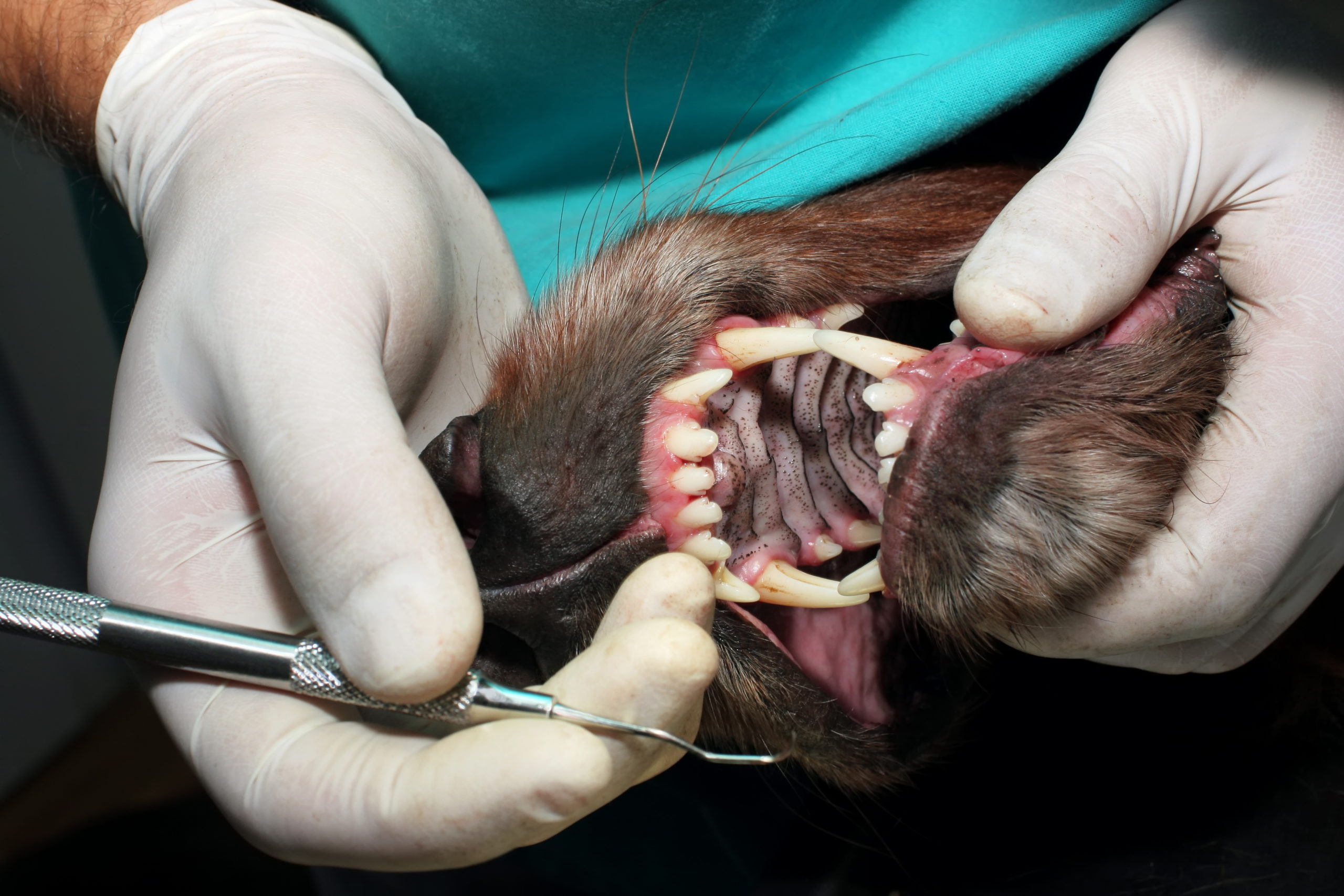
Dental disease has become one of the number one health problems for both our canine and feline patients.. Just like humans, there can be serious consequences to poor dental health for our pets!
The negative effects of dental disease don’t stop at the mouth. Once the bacteria penetrates the gums, it then enters the bloodstream. The bacteria can then spread throughout the body, causing damage wherever the bacteria settles. The kidneys, liver and delicate edges of the heart valves are particularly vulnerable to bacterial invasion.
Because your pet will not “open wide” during the dental cleaning/polishing process, this procedure is done under general anesthesia, which allows us to do a much more thorough cleaning under the gum line, which is where a lot of the real problem is located. We choose our anesthetics with your pet’s utmost safety in mind, and we perform routine blood work before anesthetizing to ensure your pet will undergo the procedure safely.
Just like in human dentistry, scaling of the teeth is performed with both ultrasonic and hand cleaning equipment. The teeth are then polished, which smooths the tooth surface so it becomes more resistant to plaque and tartar, both of which can return very quickly if teeth were not polished after scaling. Antiseptic fluids are flushed beneath the gum line to rid these germs, and fluoride treatment is administered which decreases tooth sensitivity, strengthens enamel. This treatment also has some antibacterial effects, and decreases the rate of future plaque formation.
During your yearly exam, the veterinarian will assess your pets teeth and will let you know if there’s any evidence of plaque/periodontal disease and will inform you if a dental is needed rather soon or if it doesn’t need to be done quite yet pending the state of the teeth.
